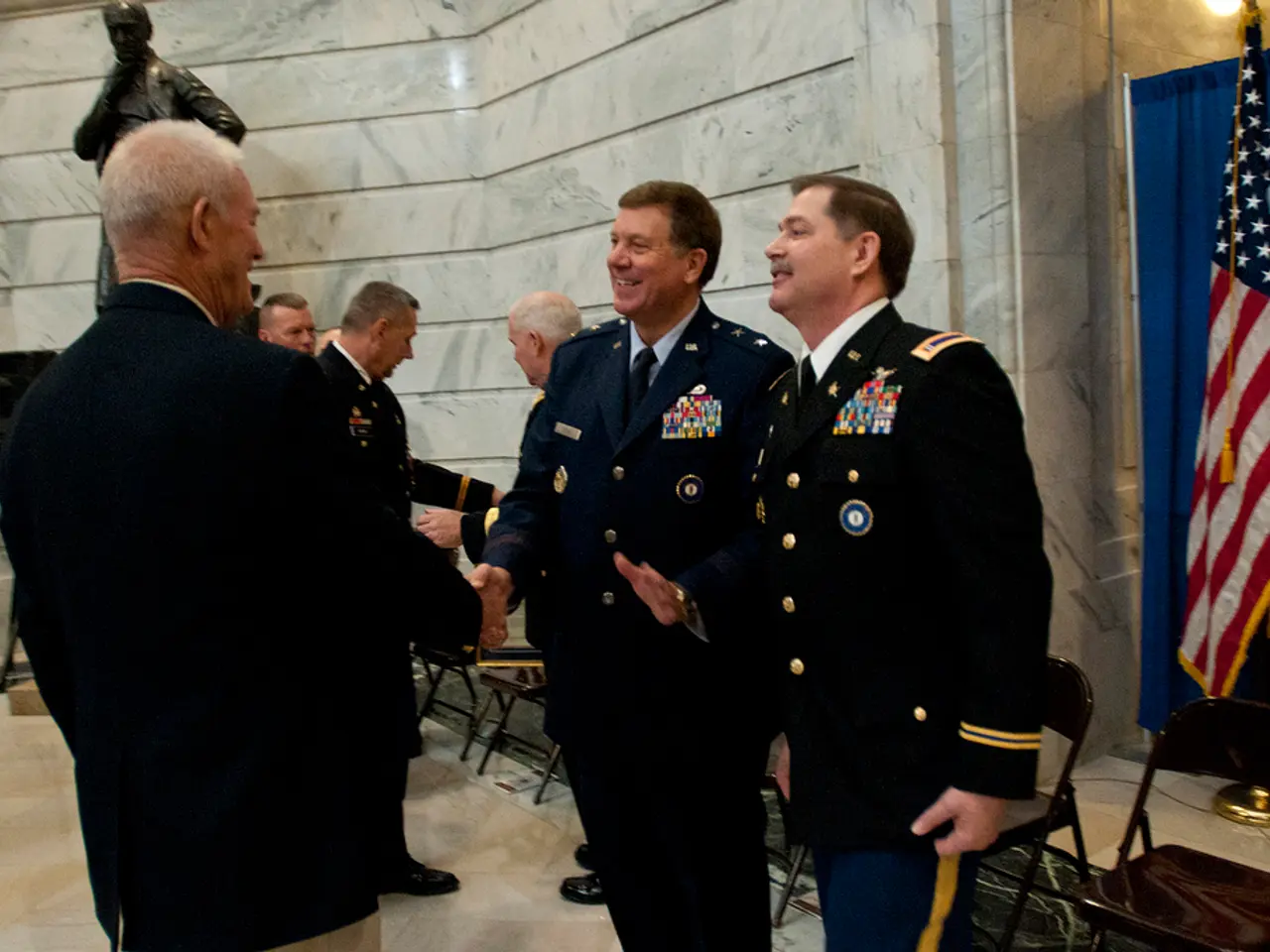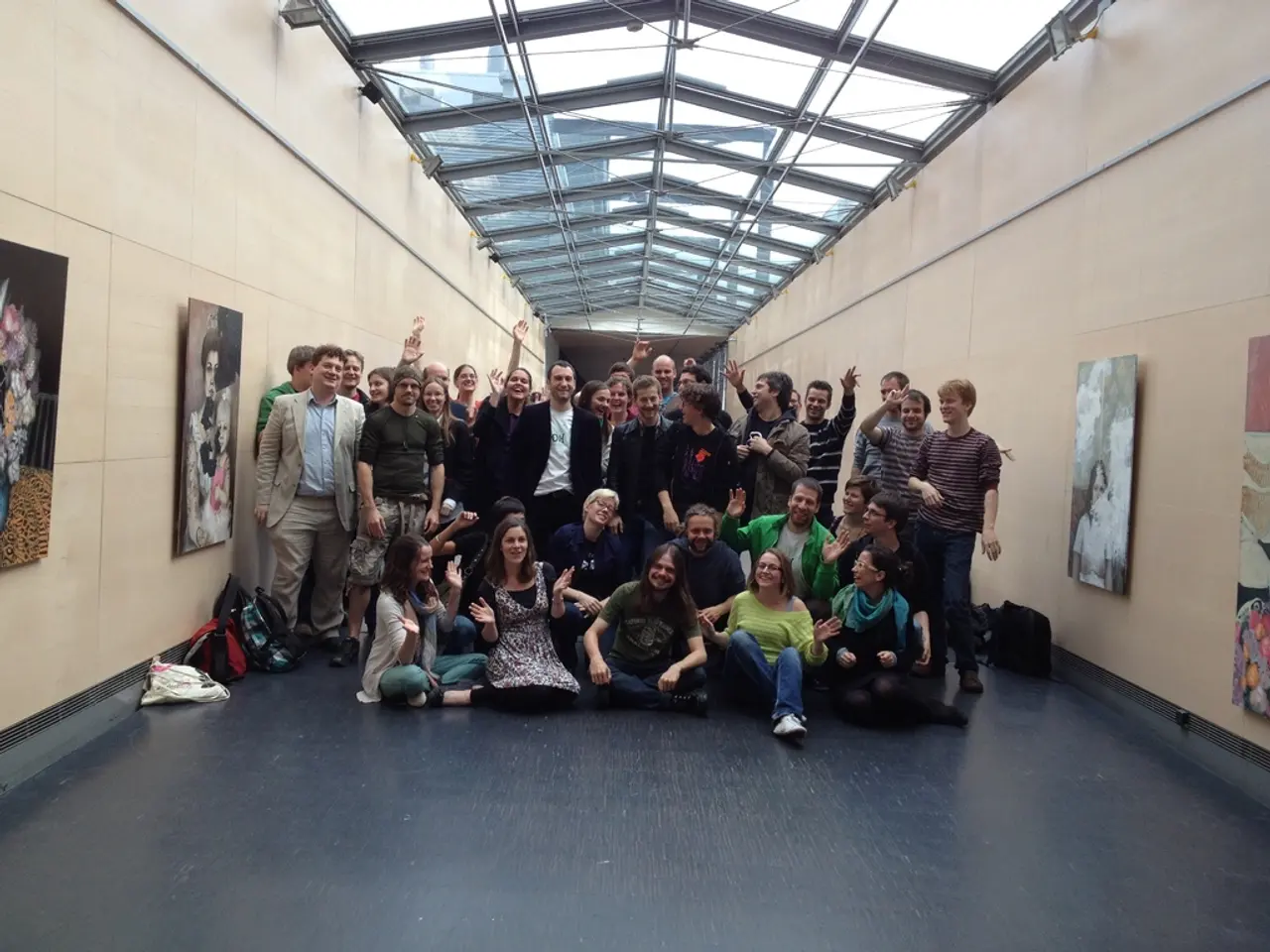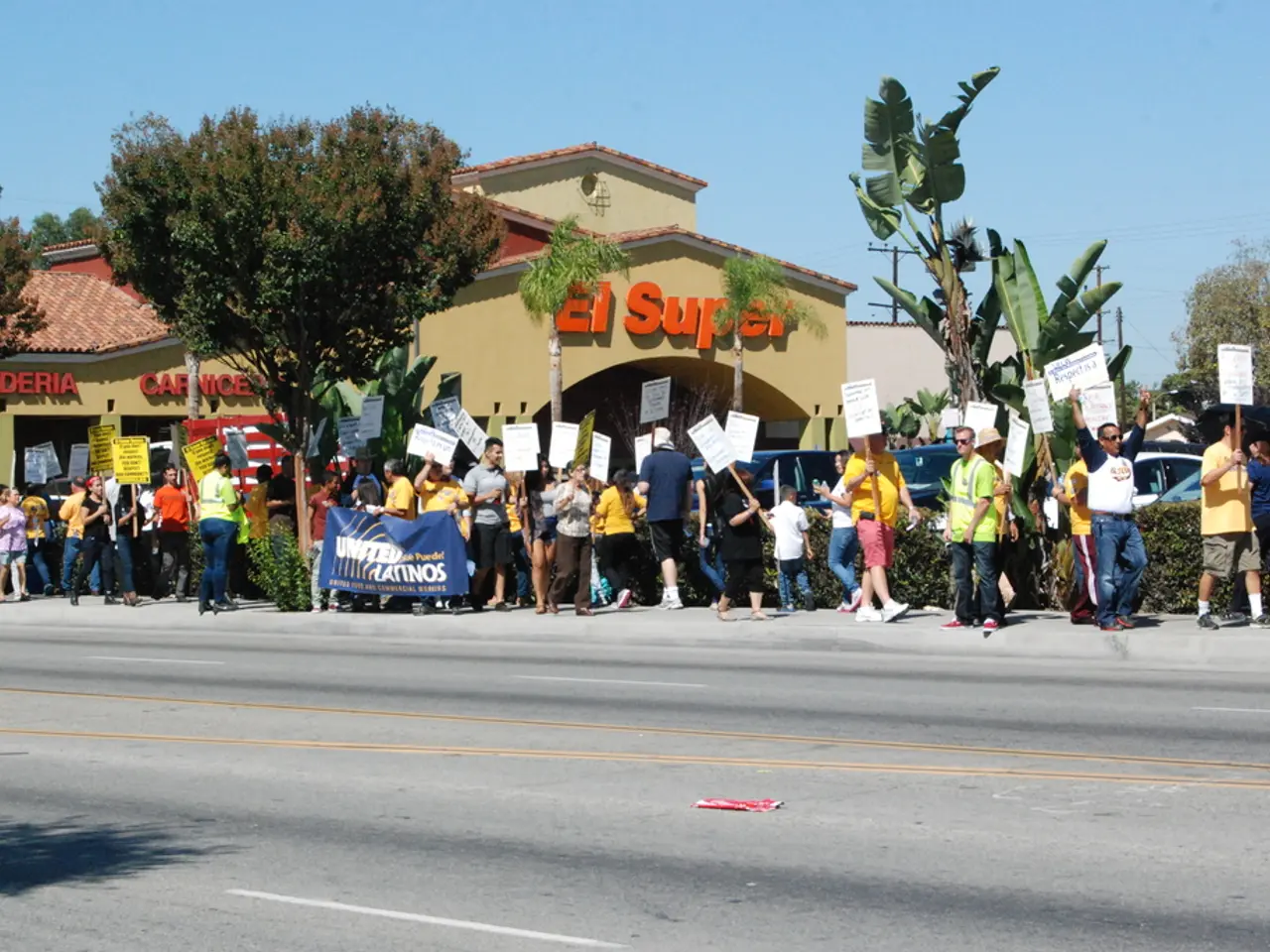Southern Catholic bishops advocate for decisive climate interventions prior to COP30 summit
In a joint statement, Catholic bishops representing over 800 million people across the Asia Pacific, United States, and Global South have issued a powerful appeal for urgent action on climate change. The statement, published with permission from Mongabay.com, comes ten years after the publication of Pope Francis' encyclical Laudato Si' and the signing of the Paris Agreement.
The bishops' appeal emphasizes the need for climate finance to be transparent and directly delivered to vulnerable communities. It also calls for the implementation of the Paris Agreement with ambition, as countries in the Global South are actively engaged in the process.
As of mid-2025, countries in the Global South are making significant strides in implementing the Paris Agreement. For instance, over 1,389 Clean Development Mechanism (CDM) project activities have submitted transition requests, with some approved in countries like Bangladesh, Bhutan, Ghana, Pakistan, Sri Lanka, and Uganda. These projects, if fully implemented, could collectively generate potential emissions reductions of around 1.5 billion tonnes of CO2e.
Local leadership is also evident in cities across the Global South. Quezon City in the Philippines, Durban in South Africa, and Guadalajara in Mexico are just a few examples of cities demonstrating climate leadership through initiatives such as clean transport, riverbank clearance, and urban heat mitigation.
However, the challenge remains in fully aligning financial flows and scaling these initiatives to meet Paris commitments comprehensively. The COP30 Action Agenda, to be convened in November 2025 in Belem, Brazil, aims to accelerate and scale climate action across various sectors globally.
A landmark 2025 advisory opinion by the International Court of Justice has reaffirmed states' binding obligations under the Paris Agreement, emphasizing that all countries, including those in the Global South, must take ambitious mitigation measures consistent with the 1.5°C target. This legal development increases international pressure for stronger implementation.
The bishops' appeal also addresses several other critical issues. It demands protection for Indigenous peoples, ecosystems, and impoverished communities, including vulnerable groups such as women and youth. It urges development banks and financial institutions to cease investing in fossil fuels or extractive projects and to denounce all attempts to financialise nature.
The bishops also call for states to implement Nationally Determined Contributions (NDCs) on a scale commensurate with the climate emergency. They urge wealthy nations to pay their ecological debt without further indebting the Global South countries and call for nations to phase out fossil fuels while promoting economic regrowth. The statement finds it contradictory to use profits from oil extraction to finance what is presented as an energy transition without any effective commitment to overcoming it.
The appeal aligns with the ongoing global push for accountability and increased ambition in addressing climate change. As the world prepares for COP30, the bishops' call serves as a reminder of the urgent need for action to protect the most vulnerable and safeguard our planet for future generations.
Keywords: activism, COP, emissions, fossil fuels, natural disasters, energy, climate, inequality, climate justice, Paris Agreement, decarbonisation, energy transition, climate risk, typhoon, extreme weather, global warming, loss and damage, COP30.
- The bishops' appeal, based on a joint statement representing over 800 million people, calls for urgent action on climate change, emphasizing the need for transparent climate finance to aid vulnerable communities.
- In accordance with the Paris Agreement, countries in the Global South are making significant strides in implementing the agreement, with potential emissions reductions of around 1.5 billion tonnes of CO2e from approved Clean Development Mechanism (CDM) projects.
- The challenge lies in fully aligning financial flows and scaling these initiatives to meet Paris commitments comprehensively, with the COP30 Action Agenda, to be held in November 2025 in Belem, Brazil, aiming to accelerate and scale climate action globally.
- The bishops' appeal also demands protection for Indigenous peoples, ecosystems, and impoverished communities, including vulnerable groups such as women and youth, and urges development banks and financial institutions to cease funding fossil fuels or extractive projects.
- The appeal finds it contradictory to use profits from oil extraction to finance an energy transition without any effective commitment to overcoming it, and calls for wealthy nations to pay their ecological debt without further indebting the Global South countries.
- The bishops' call for action aligns with the ongoing global push for accountability and increased ambition in addressing climate change, emphasizing the urgent need for action to protect the most vulnerable and safeguard our planet for future generations.






